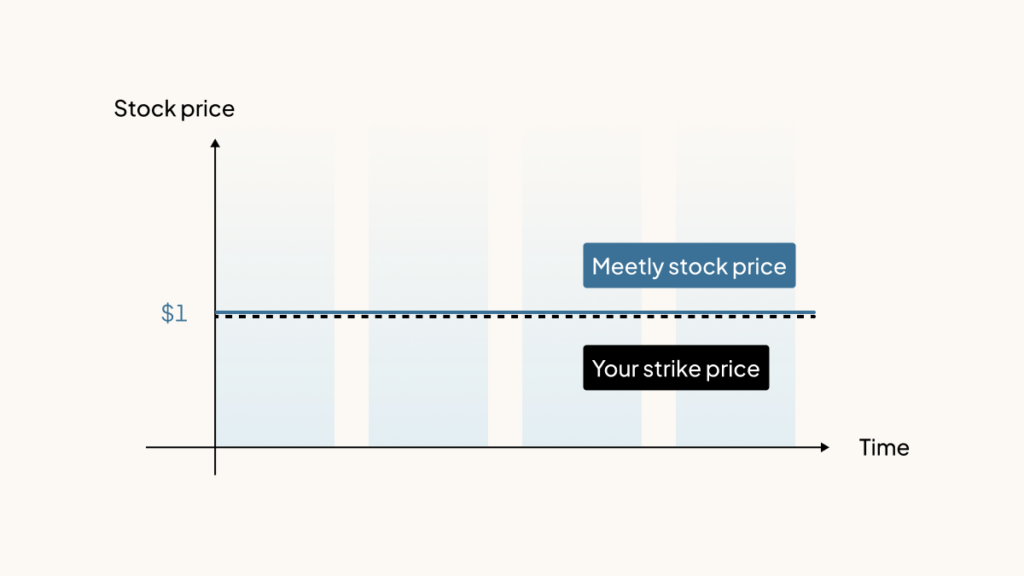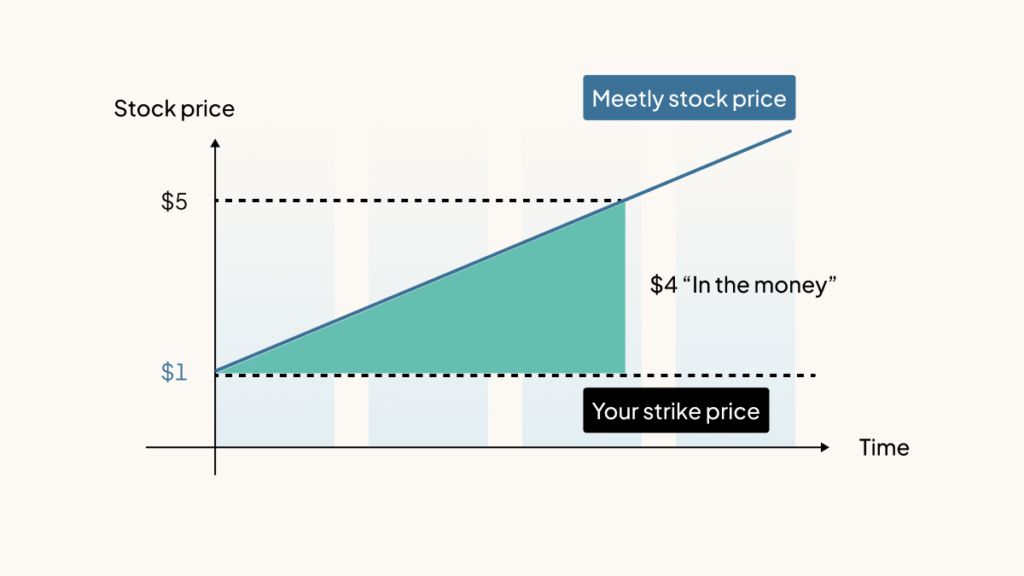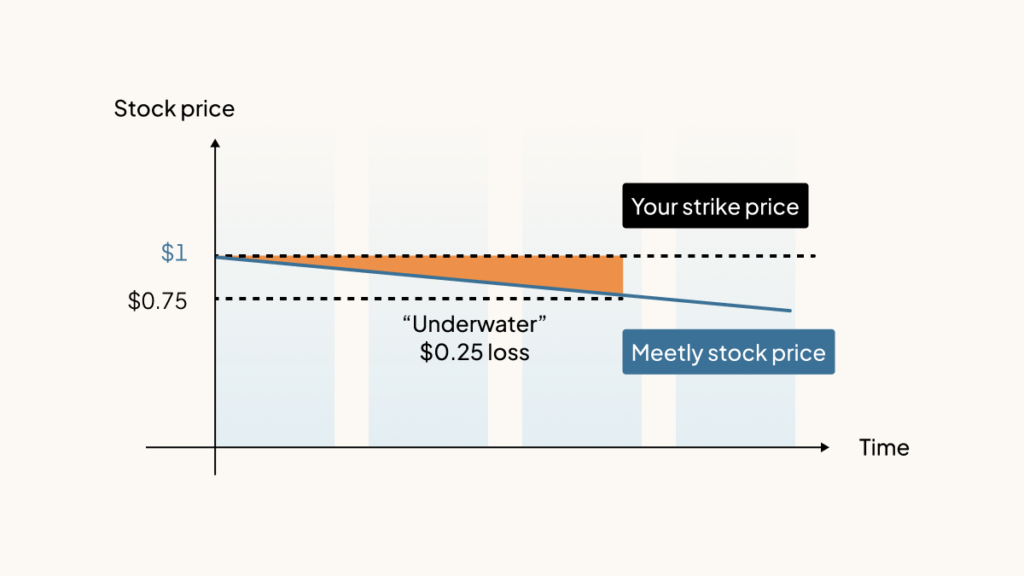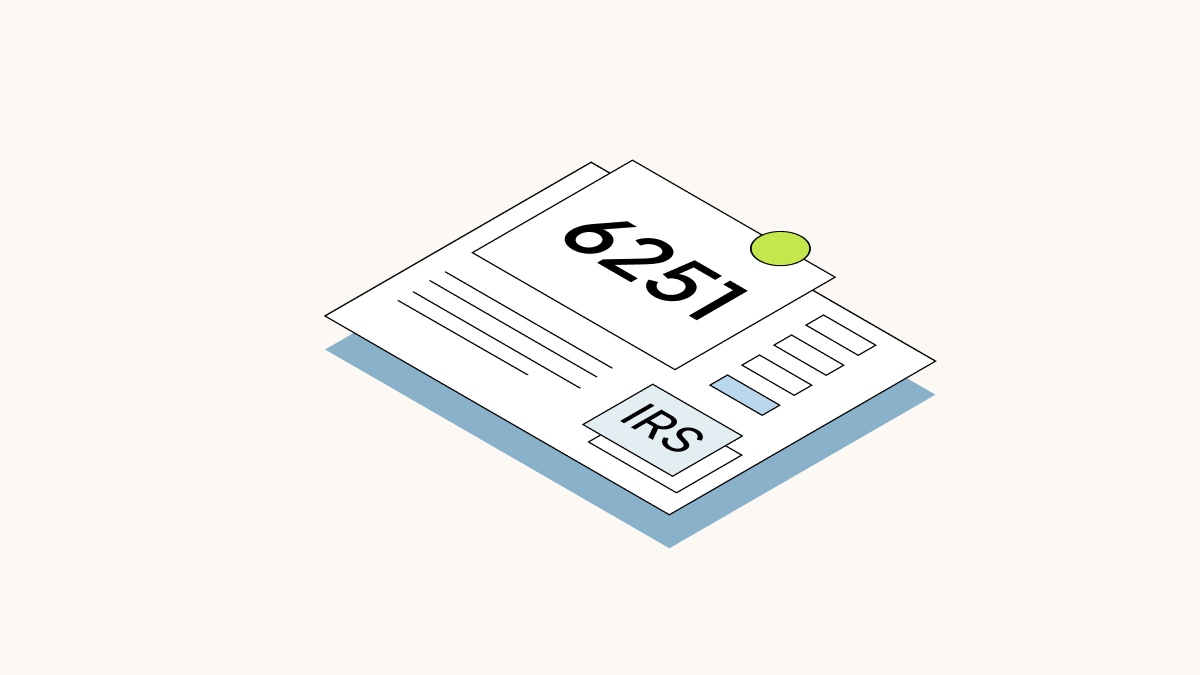What is a strike price?
A strike price, also known as a grant price or exercise price, is the fixed cost that you’ll pay per share in order to exercise your stock options so you can own them.
Your stock options give you the right to buy a certain number of shares of your company at a strike price that is outlined in your initial stock option grant. While your strike price always stays the same, the fair market value (FMV) of your company’s shares typically changes over time. You profit from this form of equity when you’re able to sell your exercised shares for more than the strike price.
If you’ve ever wondered what determines strike prices and how to figure out how much your options could be worth, we’ve got you covered. Here, we’ll explain FMV and how stock options change in value over time.
How is the strike price of an option determined?
Companies almost always determine the strike price of their stock options based on the fair market value (FMV) of their shares.
Public companies
The FMV of shares of a publicly traded company is obvious, because it’s the price that the stock is currently being traded at on the open market. For example, if shares in Apple are selling for $160 per share on a given day, their FMV that day is $160.
Private companies
The FMV of a private company’s shares isn’t so obvious because the shares aren’t consistently trading in an open market like public stocks do. Instead, private companies almost always outsource the process to determine the FMV using a 409A valuation. This valuation methodology values private stock for tax purposes, which can help determine the strike price.
FMV vs. strike price
Options generally aren’t priced lower than the FMV. If the strike price is too high, it’s difficult for employees and others to realize value from exercising and selling their options, as we’ll see below.
So a company needs to determine a realistic and justifiable FMV of its common stock in order to set a strike price when issuing options. To do this, private companies usually use a 409A valuation provider like Carta. This can help protect the company from costly audits and its employees from significant penalties.
How stock options change in value over time
At any given moment, the FMV of your stock can be higher, lower, or the same as your strike price.
“At-the-money” stock options

Imagine you have options in a fictional company called Meetly. In the graph above, the blue line represents your strike price. The strike price doesn’t change at all over time because it’s a fixed price. The dark blue line is Meetly’s current stock price (or FMV). In this scenario, Meetly’s stock price right now is exactly the same as your strike price, represented by the black dotted line. If you decide to exercise your options and buy your shares, you would have to pay $1 to get one dollar’s worth of shares in return. In this situation, your options are considered “at the money.”
“In-the-money” stock options
When the stock’s value increases, the difference between the FMV and your strike price is called “the spread.” This is the underlying value of your options. When the spread is positive, your options are considered “in the money.”

If you buy at a strike price of $1 and sell when Meetly’s FMV is $5, your spread is $4 (per share).
“Underwater” stock options
Unfortunately, not every startup gains value all the time.

If Meetly’s FMV goes down to $0.75, your spread becomes negative, and your options are then “underwater.” In this scenario, since you would have to pay $1 to get $.75 in return, you’d probably decide not to exercise your options. (Meetly could choose to reprice the options, or replace the underwater options with new ones that have a lower strike price.)
Stock dilution
If your company issues additional shares, which tends to happen when it raises a round of capital, your stock will typically be diluted, meaning that you’ll own a smaller percentage of your company. That’s not necessarily a bad thing. Because companies aim to increase their valuations each time they raise a round, diluted shareholders typically own a smaller piece of a bigger pie—which means that the actual value of your shares will often increase at the same time your equity is diluted.
Why strike prices matter
Your stock option grant outlines your exercise window—the time when you’re able to exercise your options. The beginning of your window is based on your vesting schedule and whether your company offers early exercise. Many have a 90-day post-termination exercise period (PTEP), while others offer more flexibility.
Between the time your options vest and the time they expire, knowing whether your options are underwater, at the money, or in the money will help you decide whether to exercise your options. Other factors to consider include affordability (both of the cost of exercising and of any taxes that you may need to pay upon exercising), your sense of the company’s future value, and when you expect to be able to sell your shares. Consult a financial planner to decide whether exercising your options makes sense for you.
Do you know the tax implications of your equity ownership?
Get expert 1:1 support on your equity and taxes with Equity Advisory—an additional offering exclusively for Carta customers.




